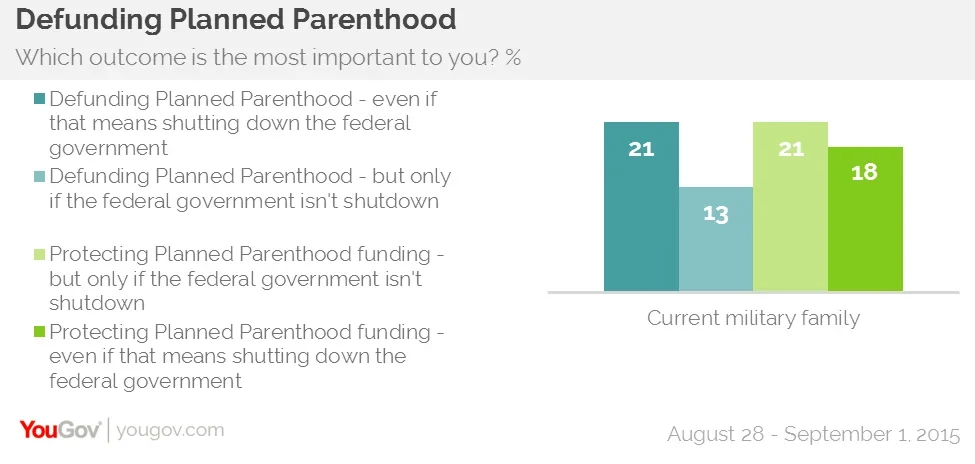Most Americans dislike Congress and have low expectations for when it returns from recess
The 114th Congress may be coming back to work after its August recess, but Americans don’t expect very much – and they aren’t very happy with their Congressional leaders, or even their own representatives. As for the Congressional leadership, Democrats seem to like their leaders more than Republicans like theirs.
In the latest Economist/YouGov Poll, the rating Americans give to Congress may appear abysmal. But it doesn’t come close to some of the lowest ratings Congress has received in the last seven years. This week’s rating of 13% approve and 58% disapprove is low, but Congressional approval has dropped into single digits several times in recent years. And disapproval has registered above 70%.
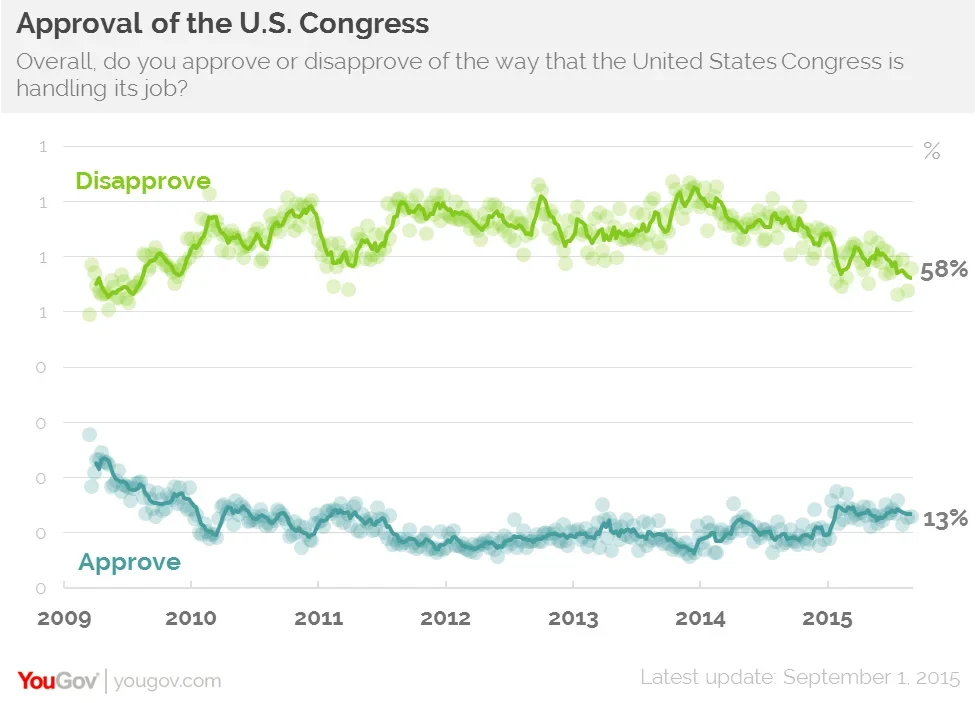
Republican approval ratings for Congress dropped as low as 2% and 1%, and in the first two years of Barack Obama’s Presidency, when Congress was controlled by the Democratic Party, Republican approval ratings for Congress were frequently in single digits. But the GOP success in the 2010 midterm elections did little to make Republicans happy with Congress; right after that election Republican approval briefly rose into the 20’s, but then dropped back again. This week, Republicans look little different from other Americans: they give Congress only a 12% approval rating. More than half disapprove.
What may trouble Republicans more than Congress in general is their GOP Congressional leadership. Half of Republicans have an unfavorable opinion of House Speaker John Boehner. Nearly as many don’t like Senate Majority Leader Mitch McConnell. Democrats feel quite differently about House Minority Leader Nancy Pelosi and Senate Minority Leader Harry Reid. More than half of Democrats have a favorable opinion of Pelosi; nearly half like Reid. Only one in four are unfavorable towards each Democratic leader.
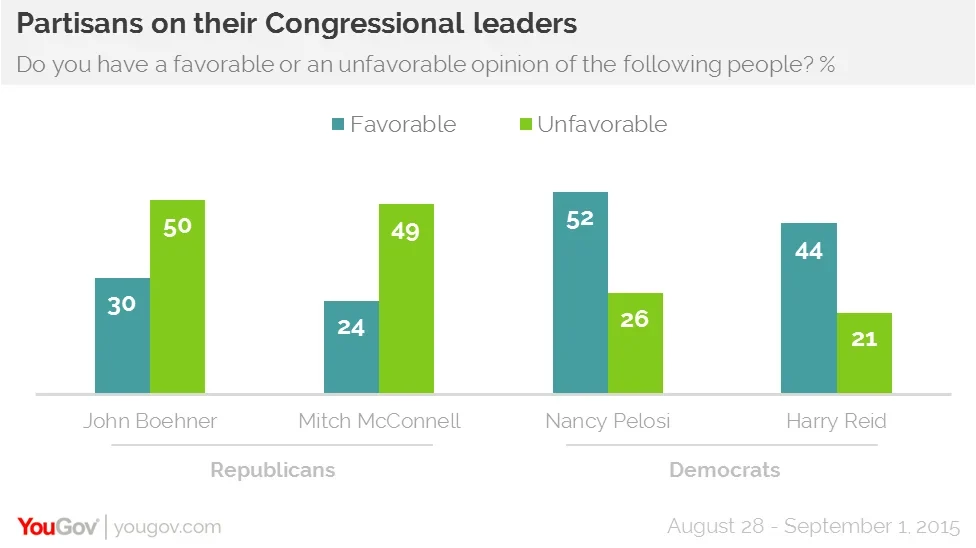
Boehner used to be popular with Republicans – and after the 2010 GOP election victories he often received 60% favorable ratings from members of his own party. But Republicans’ positive assessments of Boehner dropped in 2013, around the time of the partial government shutdown. Since then, except for brief periods around the 2014 midterms, then unfavorable assessments of Boehner from Republicans have often been higher than favorable ones.
Republicans feel better about Congressional Republicans in general than they do about Boehner and McConnell. In fact, more than half rate them favorably. But a third do not. And Democrats appear much happier with their own party’s Congressional delegations.
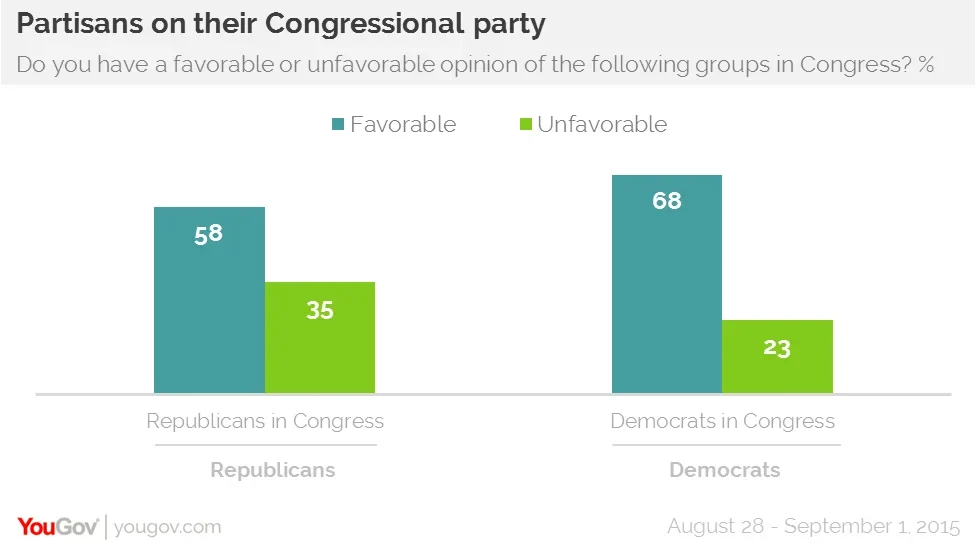
As for their own Representative, only 21% say they approve of how that person is doing their job. Nearly four in ten do not. Republicans and Democrats look similar on this question, with independents the least satisfied.
When they look towards what happens when Congress returns next week, Americans don’t expect much. And many don’t think this Congress has given them very much as of yet. 43% say Congress has accomplished less than Congress usually has at this point in time, and that feeling is shared by many of all political persuasions. Only 4% put this Congress as accomplishing more than most Congresses, while almost a third think any accomplishments have been typical.
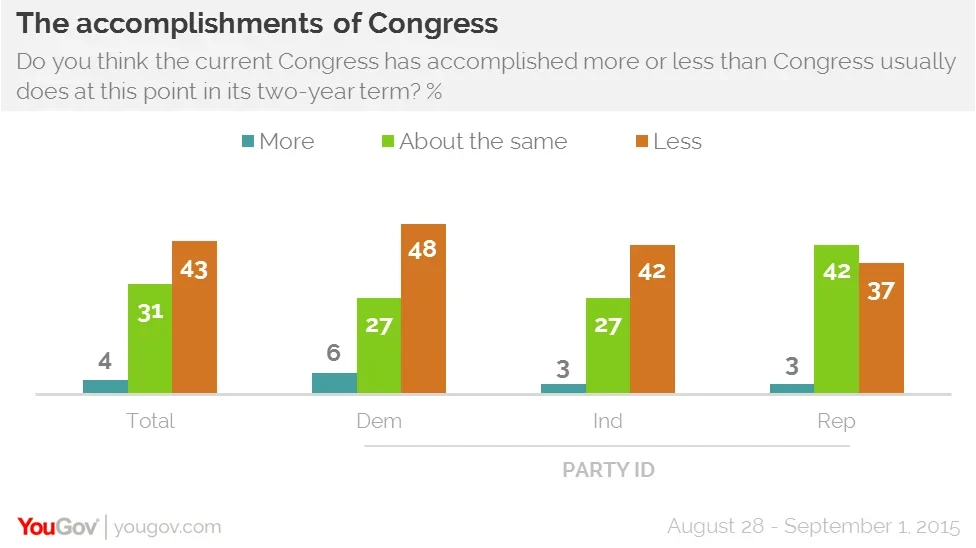
As for whatever they believe Congress might do when it returns, most Americans think it won’t be immigration reform or jobs legislation, even though majorities of both Republicans and Democrats want action both those issues. Only a third think immigration reform – or jobs legislation is likely.
The public is much more likely to expect a government shutdown, this time over lack of agreement when it comes to federal spending. The expectations of Republicans and Democrats are similar on all three of these issues.
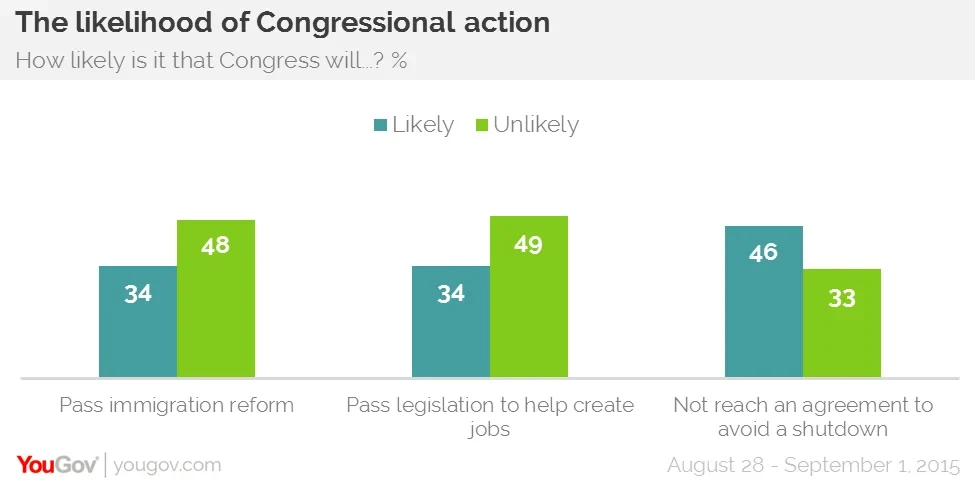
For many, a federal shutdown might not be all bad. A majority don’t think it would affect them personally. Democrats are more likely than Republicans to think it would affect them personally, but half of Democrats still say it would not.
Though there is little hope for action in Congress this fall, there will be at least two contentious issues: the nuclear agreement with Iran, and the effort to defund Planned Parenthood. Opinion on the Iran agreement has changed little in the last two weeks: by a small margin this week (38%-33%), Americans say they want their Senators to support the agreement, but nearly as many aren’t sure as take either side. When it comes to the agreement itself, more say they oppose it than support it.
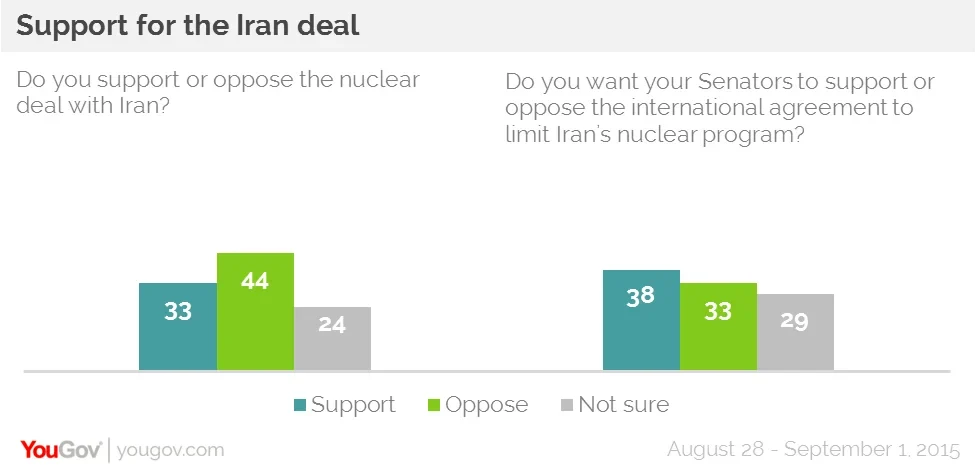
Defunding Planned Parenthood also closely divides the country. More Americans have a favorable opinion of the organization (48%) than have an unfavorable view (38%), but one in five say it’s so important to them to defund Planned Parenthood that they would be willing to shut down the government temporarily in order to accomplish that. Nearly as many say they would protect Planned Parenthood, even if that required a government shutdown.
